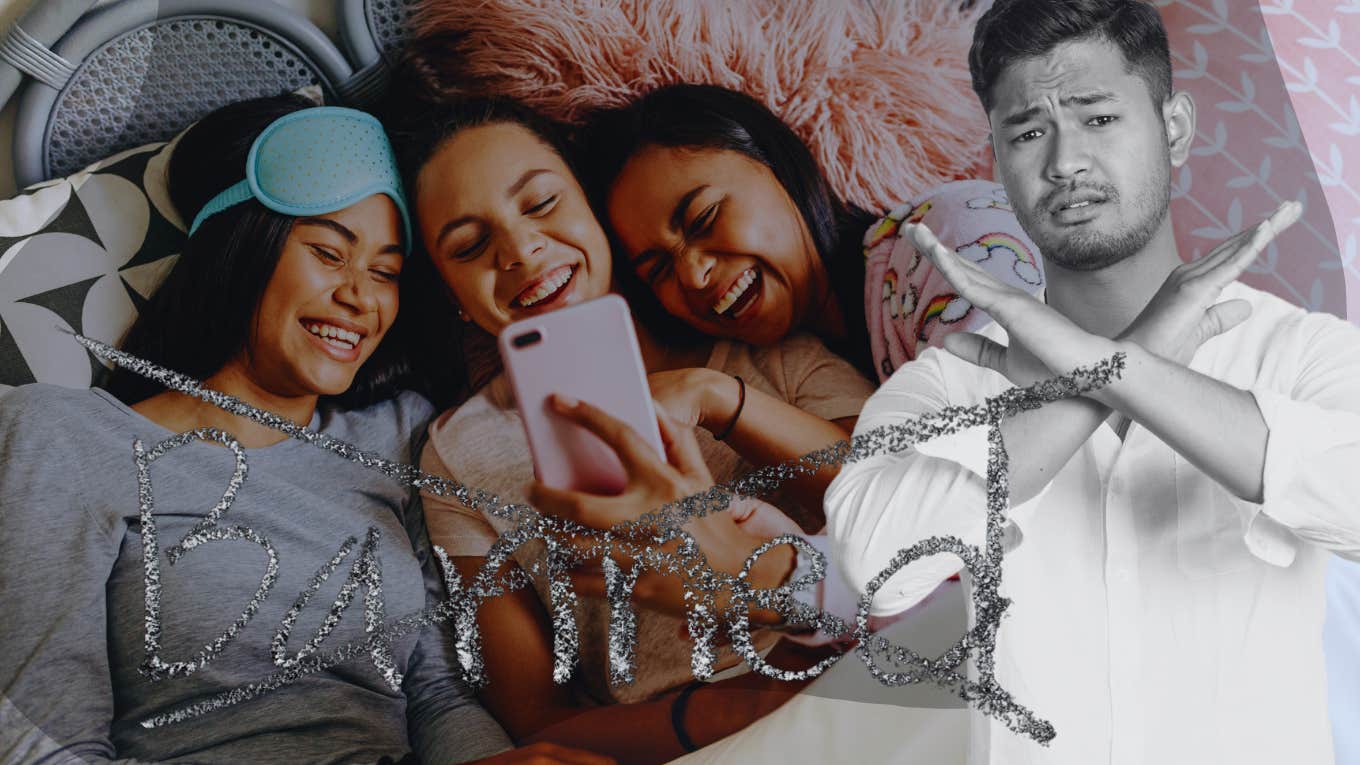Two Parenting Experts Reveal What Changed Their Minds About Kids Having Sleepovers
Plus, six ways to keep your kids safer at sleepovers and overnight events.
 pupunkkop / Getty Images, Jacob Lund, and Odua Images via Canva
pupunkkop / Getty Images, Jacob Lund, and Odua Images via Canva Sleepovers have long been a childhood rite of passage, a time-honored tradition where friends gather for an evening of games, laughter, and camaraderie.
However, recent discussions surrounding the safety of sleepovers have raised concerns about the potential risks children may face in unfamiliar environments
The Feedback That Changed These Expert's Minds On Sleepovers
On the YourTango Podcast Open Relationships: Transforming Together, co-host Joanna Schroeder discussed how her researching an article she wrote about male survivors of abuse affected her opinion about childhood sleepovers. She shared her "controversial opinion" with Dr. Cara Natterson and Vanessa Kroll Bennett, co-authors of the best-selling book This Is So Awkard, prompting the experts to share info that opened their eyes about this overnight childhood rite of passage.
Schroeder said, " There's way too much freedom in sleepovers that can facilitate bad decision-making."
In a pivotal episode of "The Puberty Podcast", Vanessa Kroll Bennet and Dr. Cara Natterson delved into the sleepover dilemma, addressing topics such as screen time and junk food. However, the response from listeners revealed a glaring gap in the conversation.
Comments flooded in, urging the inclusion of crucial issues like sexual abuse, substance abuse, and even the presence of firearms in households where sleepovers occur.
Joanna's research for the Bright Magazine article shed light on the prevalence of sexual assault during sleepovers, forcing us to confront the uncomfortable reality that these seemingly innocent gatherings may pose hidden dangers. As parents, it is our responsibility to navigate this complex landscape and implement strategies to protect our children.
Vanessa Kroll Bennet shared her insights on the feedback received after the podcast episode. "We got listener comments that were like, 'How about sexual abuse? How about substance abuse?' We did not cover those topics in the episode and heard from a lot of people who were like, 'I don't let my kids sleepover because I know someone who was sexually abused when they did a sleepover.'"
The revelation of firearms being another concerning topic adds an extra layer of complexity to the sleepover debate. It emphasizes the need for comprehensive discussions and strategies to ensure the safety and well-being of our children in diverse settings.
6 Ways To Protect Your Kids At Sleepovers
1. Open communication
Establishing open lines of communication with your child is paramount. Encourage them to share their feelings and experiences, creating an environment where they feel safe discussing any concerns that may arise during sleepovers.
2. Know the host family well, first
Prioritize getting to know the host family before allowing your child to attend a sleepover. Understanding their values, rules, and household dynamics will help you make informed decisions about the safety of the environment.
3. Set boundaries with your kids and the host family
Clearly communicate your expectations and boundaries with both your child and the host family. Discuss rules about appropriate behavior, internet usage, and any concerns related to substances or firearms.
4. Teach personal safety and bodily autonomy
Empower your child with knowledge about personal safety. Discuss the importance of consent, appropriate touch, and the ability to speak up if they ever feel uncomfortable in any situation.
5. Check in regularly
Establish a system for regular check-ins during sleepovers. Whether it's a quick phone call or a text message, staying connected with your child helps them feel reassured and allows them to share any concerns.
Potential risks during sleepovers emphasize the need for a more comprehensive approach to ensuring the safety of our children.
6. Establish a "get me out of here" code with your kid
It can be helpful to establish a clear code that a kid can use to send a parent a signal that they'd like to come home, without alerting other kids or even the parents that they are uncomfortable. A few examples: "I'm calling/texting to check on how Grandma is doing" or "My ankle is starting to hurt, what should I do?". If a kid has a phone and uses text messaging, a code like "How was pizza night?" works great.
The parents, in return, come up with an excuse to pick their child up, for instance saying a family member is ill or that there's been a small family emergency out of town and you'd like your child home so you can leave early in the morning, should it come to that.
We can strike a balance between allowing our children to enjoy the enriching experiences of sleepovers and safeguarding their well-being in an ever-evolving world if we are solid in preparing them with strategies and tools to protect themselves when out of your reach.
Or... you could ban sleepovers. That's an option too.
Deauna Roane is a writer and the Editorial Project Manager for YourTango. She's had bylines in Emerson College's literary magazine, Generic, and MSN.

